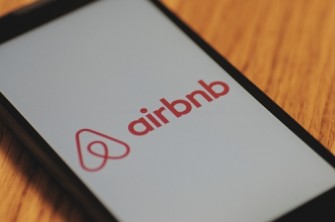Does Airbnb have a legal responsibility to end bias by its hosts?

Image from g0d4ather / Shutterstock.com.
How can Airbnb voluntarily act to end discrimination? Ask civil rights warrior Kristen Clarke about her New York Times op-ed at our 10 Questions Live Google Hangout at 2 p.m. ET today. Click here to register.
Does the law require Airbnb to police discrimination by hosts offering accommodations on its website?
The answer is unclear, but Airbnb could voluntarily act to end discrimination, according to a New York Times op-ed by Kristen Clarke, the president and executive director of the Lawyers’ Committee for Civil Rights Under Law.
Clarke believes she was a victim of discrimination when she tried to rent an apartment in Buenos Aires on Airbnb two years ago. She was rejected by the first three hosts she contacted, and she thinks Airbnb’s recommendation for a profile picture may have played a part. Clarke is African-American.
Two laws might apply to discrimination on Airbnb, Clarke says. Title II of the Civil Rights Act of 1964 prohibits racial discrimination in public accommodations, though it exempts small owner-occupied rooming houses. That would seem to exempt most Airbnb hosts.

Kristen Clarke. Photograph by Arnie Adler.
“But what if we view Airbnb as one giant hotel?” Clarke asks. “Given that Airbnb’s business competes directly with services provided by hotels, it seems appropriate to treat its rentals as public accommodations under the law.”
Another law, the Fair Housing Act, applies to brokers as well as to landlords and housing providers. Airbnb could be viewed as a broker and subject to the law, Clarke says.
Clarke notes that Airbnb has hired former U.S. Attorney General Eric Holder to help it create a new policy to prevent discrimination. Clarke has three suggestions for the company:
1) Audit hosts who are suspected of discrimination.
2) Permanently ban hosts who discriminate.
3) Stop having users display an actual name or profile picture before booking. The information should be withheld until a reservation is confirmed.
Clarke notes a pending class action against Airbnb in which the company is citing mandatory arbitration provisions in its service agreement. She believes the company should not require arbitration for potential discrimination victims.
“Only by allowing potential victims of discrimination their day in court and taking swift and comprehensive action to root out bias among its hosts can Airbnb fulfill its promise of being a truly inclusive online rental marketplace,” Clarke writes.
“If Airbnb fails to fix the problem on its own, litigation or congressional action may be required to provide greater clarity about the scope of anti-discrimination laws.”
See also:
ABA Journal: “10 Questions: Kristen Clarke is a leader in 21st century fight for civil rights”



